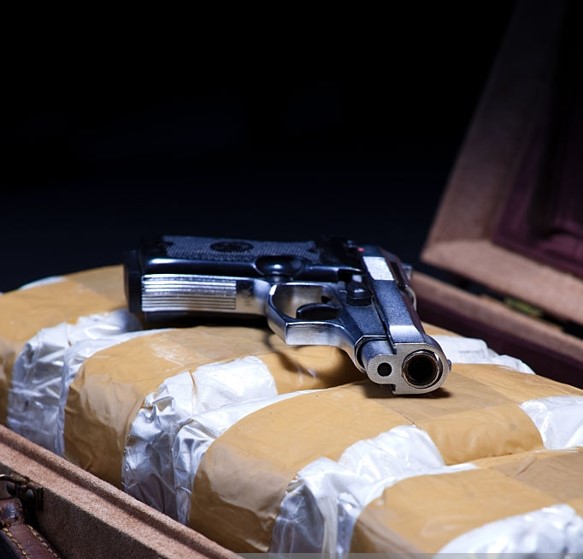Police violated client’s rights by kicking in his door, so the gun and drugs they found got kicked out of the trial

The client faced years of imprisonment for firearms and drug trafficking charges after police executed a search warrant on his apartment and found bags of drugs alleged to be cocaine and heroin in the kitchen, and a loaded high-calibre handgun in the front closet. Hours before the search warrant was issued, the client was arrested in the midst of what police alleged was a heroin deal, and for that he faced an additional charge.
While a situation like this might seem like an open-and-shut case, there is always the question of constitutional compliance when police invade someone’s privacy in order to seize evidence. This question is all the more important when the place that police enter and search is the home – one of the most sacrosanct zones of privacy recognized under law. A close inspection of the search warrant, and what the police did to get it issued, can reveal fatal errors in the documentation, as well as police conduct that falls well below what the law considers fair.
In the course of proceedings that spanned nearly a year, Mr. MacDonald obtained additional disclosure, cross-examined the police officer who had the warrant issued, and presented the necessary materials and arguments to demonstrate to the trial judge that the warrant could never have been validly issued, and that it was invalid in any case because of the way that it was drafted.
In two thorough and well-reasoned rulings, the trial judge found that the client’s s. 8 Charter right protecting him against unreasonable search and seizure had been violated by the search of his residence (which was warrantless because the warrant was invalid), and that to protect the repute of the administration of justice the seized evidence had to be excluded from trial under s. 24(2) of the -- because of the seriousness of the police conduct and the significant impact of their actions on the client’s right to privacy.
The exclusion of this evidence effectively gutted the Crown’s case against the client, and he was found not guilty of all charges. This result was a reminder that our constitution is the supreme law of the land, and that we cannot tolerate it be being violated for the purpose of enforcing or prosecuting lesser laws, whatever they may be.
